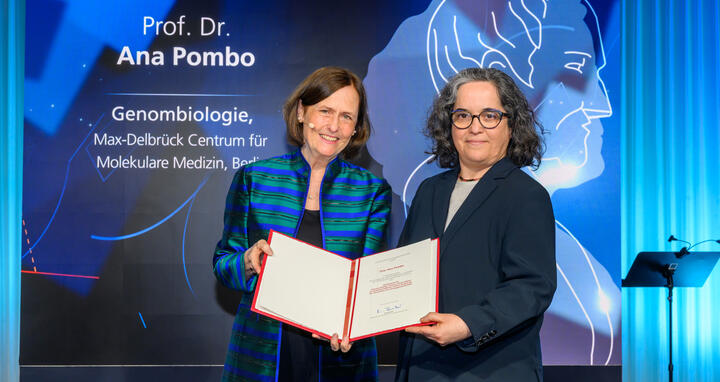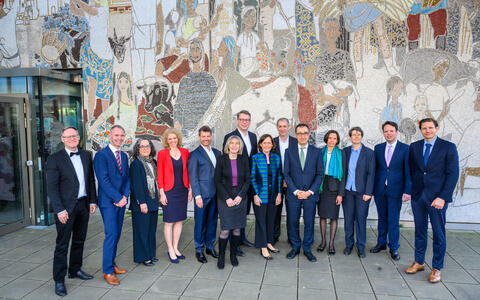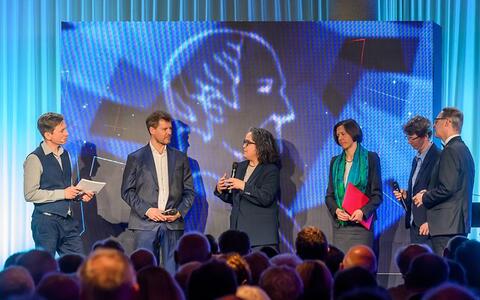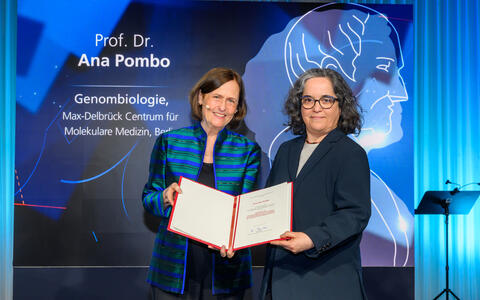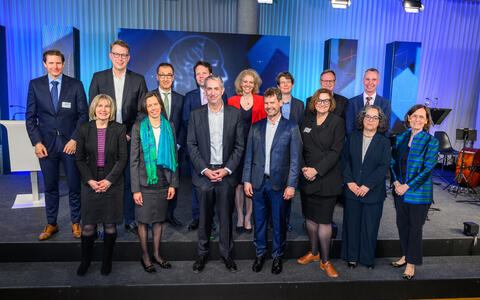Leibniz Prize awarded to Ana Pombo
Cells neatly fold two meters of their DNA into a nucleus only ten micrometers in diameter. Professor Ana Pombo is exploring this genome contortion mechanism to better understand how environmental exposures and experiences affect the spatial interaction between genes and their “on” and “off” switches. In 2017, her research group at the Berlin Institute for Medical Systems Biology of the Max Delbrück Center (MDC-BIMSB) published a method in the journal “Nature” that can map the 3D architecture of entire genomes. By understanding how conformational changes in DNA affect how genes are regulated, researchers can develop ways to intervene.
For her groundbreaking work, the primary committee of the German Research Foundation (DFG) has honored Ana Pombo and nine other scientists with Germany’s most significant research award. She will receive the Gottfried Wilhelm Leibniz Prize at a ceremonial event on March 19, 2025. The prize comes with a grant of €2.5 million.
“We seek to reverse disease-causing cellular changes at the earliest possible stage. Achieving this requires a deep understanding of the mechanisms that govern genome function,” says Professor Maike Sander, Scientific Director of the Max Delbrück Center. “Ana Pombo's groundbreaking work is making a fundamental contribution to this goal. As a true pioneer in the field, we extend our warmest congratulations to her.”
About Ana Pombo
Ana Pombo
Ana Pombo was born in 1969 in Portugal and studied biochemistry at the University of Lisbon. After completing her doctorate at the University of Oxford, she initially worked as a group leader at the MRC London Institute of Medical Sciences at Imperial College London, U.K. In 2013, she joined the Max Delbrück Center and simultaneously took on a professorship in Transcriptional Regulation and Genome Architecture at Humboldt University in Berlin. She is the Deputy Director of MDC-BIMSB and Deputy Program Spokesperson for the Max Delbrück Center. In 2007, she received the Robert Feulgen Prize and is a member of the European Molecular Biology Organization (EMBO) and the European Academy of Sciences.
Ana Pombo joins two previous winners at the Max Delbrück Center: Professor Nikolaus Rajewsky and Professor Carmen Birchmeier. Since 1985, the DFG has been honoring outstanding top researchers with the Leibniz Prize. The award provides recipients with opportunities to expand their research and hire highly qualified early-career scientists. The 2025 Leibniz Prizes will be presented in a ceremony on March 19, 2025, in Berlin. The award ceremony will be preceded by an event celebrating the 40th anniversary of the program, where all previous prize recipients will be able to connect and network.

Further information
- Portrait of Ana Pombo
- DFG press release (German)
- Celebrating women in STEM
- New tool uncovers complex genome interactions
Photo for download
Portrait of Professor Ana Pombo. Photo credit: Pablo Castagnola
Contact
Jana Schlütter
Editor, Communications
Max Delbrück Center
+ 49 30 9406-2121
Jana.Schluetter@mdc-berlin.de or presse@mdc-berlin.de
- Max Delbrück Center
The Max Delbrück Center for Molecular Medicine in the Helmholtz Association (Max Delbrück Center) is a world leading biomedical research institution. At the locations in Berlin-Buch and Mitte, researchers from some 70 countries study human biology – investigating the foundations of life from its most elementary building blocks to systems-wide mechanisms. By understanding what regulates or disrupts the dynamic equilibrium of a cell, an organ, or the entire body, we can prevent diseases, diagnose them earlier, and stop their progression with tailored therapies. Patients should be able to benefit as soon as possible from basic research discoveries. This is why the Max Delbrück Center supports spin-off creation and participates in collaborative networks. It works in close partnership with Charité – Universitätsmedizin Berlin in the jointly-run Experimental and Clinical Research Center (ECRC), the Berlin Institute of Health (BIH) at Charité, and the German Center for Cardiovascular Research (DZHK). Founded in 1992, the Max Delbrück Center today employs 1,800 people and is 90 percent funded by the German federal government and 10 percent by the State of Berlin.

